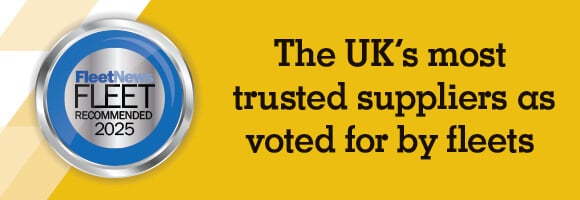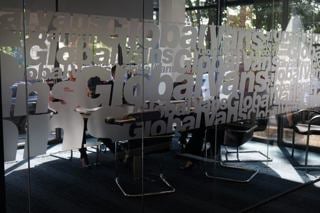Arval has grown its vehicle leased fleet by 6.9% year-on-year, with battery electric vehicles (BEVs) accounting for one-in-five new vehicle orders in the last quarter.
Its global fleet now comprises of 1,701,540 leased vehicles worldwide and the leasing giant is predicting a positive outlook for 2024.
The global leased fleet includes 166,363 BEVs, up 85% year-on-year, with pure electric vehicles (EVs) accounting for 22% of new vehicle orders in the last quarter of 2023.
Arval has set a goal of 350,000 BEVs and an overall target of 700,000 electrified vehicles leased by 2025, contributing to the objective of reducing its fleet’s CO2 emissions by 35% compared with 2020.
In the UK, Arval was ranked fourth in last year's FN50, based on a risk fleet size of 189,243 cars and vans.
Arval has today reported organic fleet growth of 2.9% during 2023, bringing its total UK fleet size to 192,068.
Much of the rise has been driven by the ongoing transition towards BEVs. Arval’s UK fleet now includes 44,021 BEVs which account for a 23% share of the total – up by 52% year-on-year.
One-third (33%) of new vehicle orders placed during December were for BEVs.
Arval UK managing director, Lakshmi Moorthy, said: “The story of our growth in 2023 is very much centred on fleet adoption of zero-tailpipe emission vehicles.
"Businesses are rapidly moving in this direction, prompted by favourable benefit in kind taxation and a corporate desire to reduce their environmental impact.
“However, a further and perhaps unappreciated factor behind our success is that we are in a moment when leasing opens up new mobility options and helps customers to manage economic pressures. This is a key part of the organic rise in our fleet numbers.”
She added that 2023 had also been a highly innovative year for Arval UK, with additional products contributing to the growth of the company’s fleet and supporting customers on the transition to new mobility solutions.
These included electric cargo-bike leasing, and Arval Re-Lease, which enables consumers to lease used vehicles.
Lakshmi said: “We unveiled our electric bike leasing programme last year. It is part of our concept of identifying the right vehicle for the right journey with optimum usage.
"Several customers are now using electric bikes for last mile deliveries in urban areas and to keep their staff mobile in cities with clean air zones.
"Notably, our electric bike fleet has grown by 133% in 12 months, primarily through electric cargo-bikes. We believe this is a market with huge promise.
"Similarly, our used vehicle product, Arval Re-Lease, has seen an 161% increase in lease numbers with a tenfold increase in the number of BEVs leased. This is supported by the rise in used BEVs now becoming available from previous leases.
"Again, we foresee further growth here in 2024 as this opens up access to attractive used vehicles, including BEVs, at a different price point for a whole new segment in the market. It also democratises access to EVs which may be perceived as expensive.”
Uptake of Arval Accident Management, meanwhile, increased by 27%, as did Arval Total Care, a product which increased by 34% and enables customers to bundle most significant vehicle costs into a single monthly payment.
Finally, salary sacrifice has gained even more traction and fleet numbers have increased by 48% in 12 months and with more than half being BEVs.
Lakshmi said: “This is another area where the company car taxation advantages of BEVs are having a significant impact, making salary sacrifice initiatives very attractive to employees who want to lease a car by availing of the very attractive tax scheme in place.”
Alain van Groenendael, chairman and CEO of Arval, says that 2023 was an “exceptional year” for the global business, illustrated by the growth of its leased fleet.
“We can all be very proud of our achievements,” he added. “This bodes well for the opportunities and challenges that await us in 2024, which will be a year of transition for the market and for Arval.
“With the backing of BNP Paribas, our employees and our partners, we will continue to spur our growth by offering our customers ever stronger support as they carry out their energy transition.”
International large corporates accounted for 440,000 leased vehicles worldwide, an increase of 8%.
Local corporate segment clients accounted for 696,000 vehicles, an increase of 3%.
The retail segment reached 506,000 vehicles, up 12% compared with 2022.
Furthermore, with 105,000 active users and 60,121 vehicles, Arval Flex, its subscription offer grew by 9%.
Finally, the number of connected vehicles passed the 633,000 mark, an increase of 39% on the previous year. This puts Arval on target to connect 80% of its fleet by 2025.
In 2024, Arval’s main objective in a rapidly changing market will be to build on the positive momentum of recent years, it says.
The acceleration of the energy transition of fleets will be at the core of its strategy.
Key to its success, it argues, will be expanding the selection of BEVs available, implementing partnerships for vehicle charging, providing expertise and advice to fleets for the development of mobility policies that include BEVs, and complementary mobility solutions that emit less CO2.
This year will also mark the completion of Arval Beyond, which was launched in 2020.
Arval will spend the next 12 months building a new strategic plan, which will be announced in early 2025 and, it says, it will mark a “turning point” in the company’s history.
Globally, Arval has 8,388 employees serving more than 300,000 customers in 29 countries.























Login to comment
Comments
No comments have been made yet.